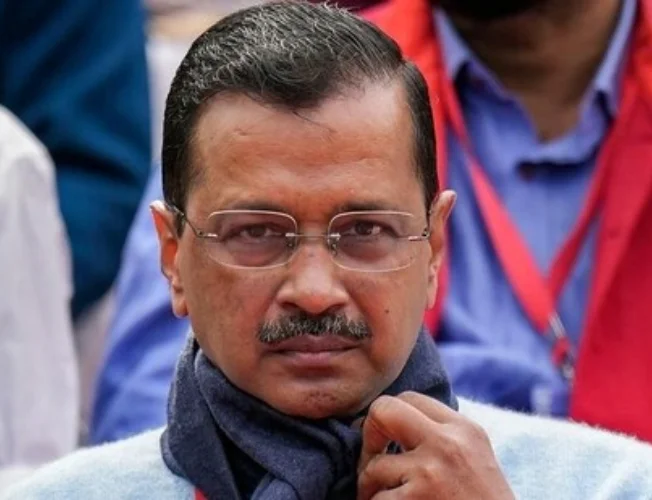Delhi Chief Minister Arvind Kejriwal ignited a political firestorm with his recent comments alleging that senior Bharatiya Janata Party (BJP) leaders, including Shivraj Singh Chouhan and Vasundhara Raje, might form their own parties if the Enforcement Directorate (ED) and a specific clause of the Prevention of Money Laundering Act (PMLA) were abolished.
The Remark and Its Context
Kejriwal, the chief of the Aam Aadmi Party (AAP), made these remarks during a meeting with Congress leaders Mallikarjun Kharge and Abhishek Manu Singhvi in Delhi. While details regarding the meeting’s exact purpose remain unclear, sources suggest it involved discussions on seat-sharing for the upcoming Lok Sabha elections.
The Specific Claims
Kejriwal reportedly stated that if the ED, an agency primarily responsible for investigating financial crimes, were shut down and Section 45 of the PMLA, which empowers confiscation of attached assets without a trial, were abolished, “half of all BJP leaders will leave.” He further quipped that prominent leaders like Chouhan and Raje could even form their own political outfits within hours.
Reactions and Implications
These remarks have drawn sharp criticism from the BJP, with accusations of baseless allegations and attempts to divert attention from AAP’s own issues. Senior party leaders have demanded clarifications and threatened legal action. Meanwhile, opposition parties like the Congress have refrained from commenting directly, although some analysts see a potential opportunity for political alliances against the BJP.
Beyond the Controversy: Understanding the Underlying Issues
Kejriwal’s comments raise fundamental questions about the role of investigative agencies like the ED and the legal framework around anti-money laundering measures. While these tools aim to combat financial crimes, concerns about potential misuse and infringement on individual rights remain prevalent.
Possible Motivations
Some experts suggest Kejriwal’s statement could be motivated by several factors:
- Political Strategy: With impending elections, Kejriwal might be attempting to target the BJP on sensitive issues related to financial investigations and potentially garner support from other opposition parties.
- Highlighting Concerns: He could be aiming to bring attention to broader anxieties around the use of investigative agencies and legal instruments like the PMLA, sparking a national debate.
- Personal Feud: There might be underlying political and personal differences between Kejriwal and some BJP leaders, influencing his statements.
Looking Ahead: Unforeseen Consequences?
It remains to be seen how these remarks will impact the political landscape and public discourse. While some consider them mere political rhetoric, others fear they could exacerbate existing polarization and undermine trust in institutions.
Key Questions to Consider
- Do Kejriwal’s allegations hold any merit?
- Is the use of agencies like the ED and legal provisions like Section 45 of the PMLA balanced and effective?
- Could these controversies influence upcoming elections and public opinion?
By critically analyzing these questions and fostering healthy public discussion, we can move beyond the immediate reactions and engage in a constructive dialogue about crucial issues related to governance, accountability, and individual rights.
Read more.. Marketing News, Advertising News, PR and Finance News, Digital News.





